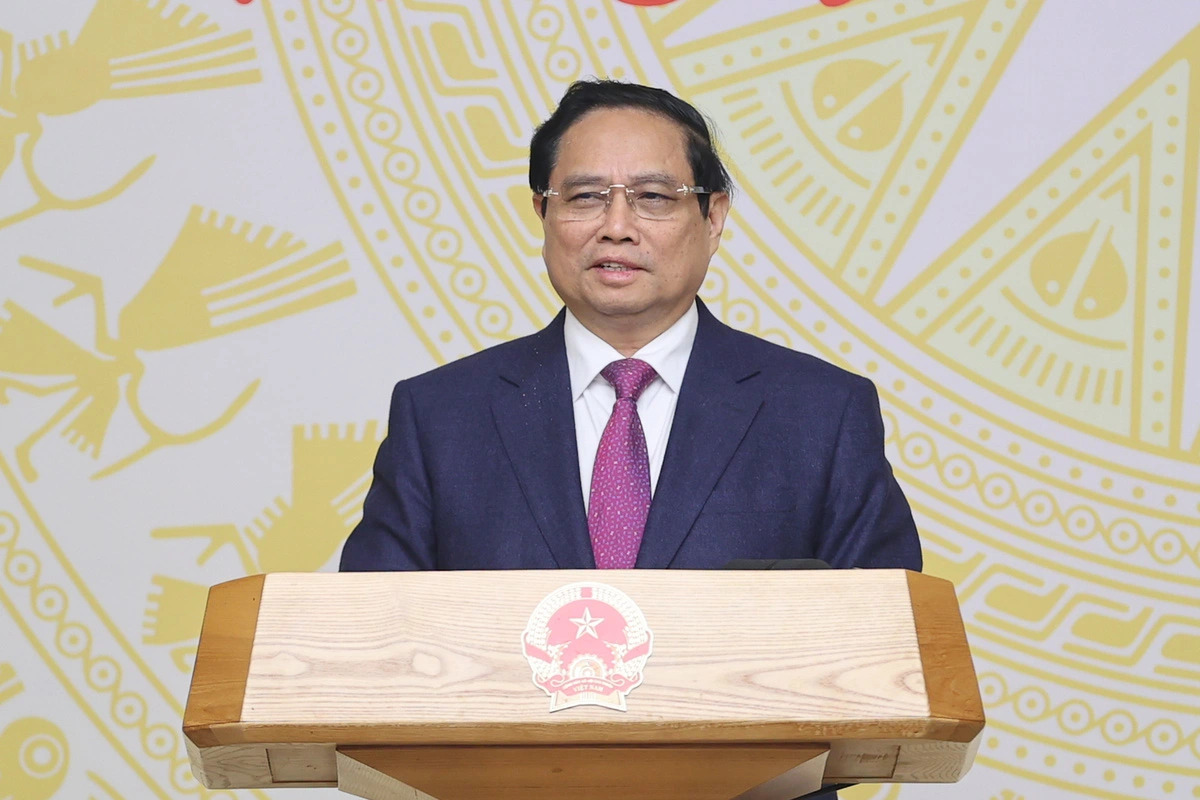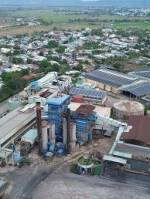
On January 10, the prime minister issued Decision No. 72 officially establishing the steering committee for the construction of a nuclear power plant in Ninh Thuan Province, located in the south-central region of Vietnam.
The steering committee was tasked with overseeing the continued implementation of the Ninh Thuan nuclear power project, monitoring progress, and proposing solutions to resolve challenges during the project’s execution.
The committee will also focus on revising and improving legal regulations related to nuclear energy development, ensuring safety, security, and efficiency.
Additionally, it will direct the creation of a national nuclear energy development program. The committee is also responsible for fostering international cooperation, including with the International Atomic Energy Agency (IAEA), in nuclear energy development.
After reviewing reports regarding the project, PM Chinh emphasized the urgency of initiating construction.
He advocated for a methodical, step-by-step approach to ensure gradual progress while being neither overly cautious nor hasty.
The premier highlighted that the government’s policy on nuclear science and technology development, including the construction of a nuclear power plant, is clear.
“Nuclear power is a crucial element in meeting the demand for clean energy,” he explained.
“To achieve double-digit GDP growth as targeted by the government, electricity growth must reach 15-18 percent.”
Moreover, in Vietnam’s new era of prosperity and advancement, nuclear technology for peaceful purposes, including power generation and nuclear medicine, is essential.
PM Chinh outlined a five-year timeline for completing the Ninh Thuan nuclear power plant.
He stressed the need for detailed annual plans to meet the 2030 target, which coincides with the 100th anniversary of the founding of the Communist Party of Vietnam.
The PM also instructed the Ministry of Industry and Trade to revise and finalize necessary plans by February 28.
As Vietnam currently has around 400 nuclear power specialists, the PM urged state utility Vietnam Electricity (EVN) to consolidate this workforce, identify further training needs, and report back to the steering committee promptly.
A dedicated and professional organization must be established to manage the project and prepare for future nuclear energy initiatives.
The head of government also called for the development of a special mechanism and institutional framework addressing tax, credit, land, and talent recruitment policies.
In terms of infrastructure, Ninh Thuan authorities were tasked with attracting public-private partnerships to develop civilian use of Thanh Son Airport.
The province was also asked to enhance transportation, electricity, water, and cultural, educational, and sports facilities to support the project and its workforce.
PM Chinh assigned tasks to agencies for collaboration with the IAEA on issues related to the project.
The Ninh Thuan administration was instructed to focus on land clearance and policies for residents affected by the project.
Vietnam’s legislative National Assembly (NA) recently approved the resumption of the Ninh Thuan nuclear power project after an eight-year hiatus.
The project is deemed critical for national energy security and aligns with the country’s net-zero emissions target by 2050.
On November 30, 2024, the legislature passed a resolution to restart the project, directing the government to allocate necessary resources and review legal frameworks, including the Atomic Energy Law, to facilitate its implementation.
The Ninh Thuan nuclear power project was approved by the NA in 2009, with EVN as the investor.
Initially, EVN collaborated with Russia and Japan to develop the Ninh Thuan 1 and Ninh Thuan 2 plants, with a combined capacity of over 4,000 MW and an estimated cost of VND200 trillion (US$7.9 billion).
However, the project was suspended in 2016 due to safety concerns, high costs, technological challenges, and changes in global energy trends.
The ministry recently proposed that the PM allow EVN to remain the project’s investor, appoint consultants for reviewing and updating the project’s pre-feasibility study, and propose special mechanisms to ensure its successful implementation.
Vinh Tho – Ngoc An




